#unprofor
Explore tagged Tumblr posts
Text
Lunedì 31 maggio 1993
Cara Mimmy,
sono terribilmente giù di morale. Sono annoiata e depressa. Motivo numero uno: non c'è scuola perché è la festa di Bairam. Numero due: è venuta a mancare anche quel poco di elettricità che riusciamo ad avere con un cavo, quindi addio musica, addio film, addio luce. Siamo nuovamente nelle tenebre, sprofondati nelle tenebre. Papà ascolta delle notizie deprimenti. Numero tre: a partire da giovedì, i bombardamenti sono ripresi in modo selvaggio. PUAH! Ieri i cannoneggiamenti sono continuati in modo incessante dalle quattro del mattino fino alle dieci di sera. Sono cadute dalle tre alle quattro bombe al minuto. Bentornati in cantina! Questa mattina abbiamo saputo che l'UNPROFOR ha contato millecento bombe, però secondo Nedo si tratta solo del 60%, perché l'UNPROFOR riesce a contare solo il 60% delle bombe lanciate. In tutto quindi erano duemila bombe. Cioè tre, quattro al minuto. Ecco perché sono giù di morale. Che tutto stia per ricominciare un'altra volta? Scusami, sono nervosa. Non arrabbiarti con me, mi passerà.
Ti voglio bene, Zlata
---------
Zlata Filipović, Diario di Zlata. Una bambina racconta Sarajevo (traduzione di Raffaella Cardillo e Maria Teresa Cattaneo), Rizzoli, 1994¹; p. 119.
[Ed.ne or.le: Le journal de Zlata, Fixot et éditions Robert Laffont, S.A., Paris, 1993]
#Zlata Filipović#Diario di Zlata. Una bambina racconta Sarajevo#Sarajevo#Jugoslavia#Yugoslavia#guerra di Bosnia#anni '90#1993#guerra#Bosnia#letteratura per ragazzi#Bosnia-Erzegovina#libri per ragazzi#'900#storia del XX secolo#diario#citazioni letterarie#guerre yugoslave#guerre jugoslave#bambini#infanzia#diaristica#vita#testimonianze#Maria Teresa Cattaneo#Raffaella Cardillo#UNPROFOR#festa di Bairam#Europa#ricordi
14 notes
·
View notes
Text

UNPROFOR Commander Morillon appeals for calm as he attempts to leave Srebrenica.
In March 1993, UN Protection Force Commander (UNPROFOR) Philippe Morillon talked his way through a Serb blockade and entered Srebrenica. He was then prevented from leaving by crowds of refugees in the town who thronged his vehicle. One woman shouted through Morillon’s car window: “Why is the world not ashamed? Why should you go home? I haven’t been home for a year.”
1 note
·
View note
Photo
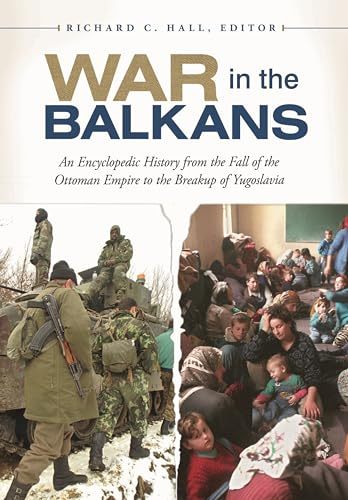
War in the Balkans: An Encyclopedic History from the Fall of the Ottoman Empire to the Breakup of Yugoslavia
This comprehensive encyclopedia is edited by the acclaimed historian Richard Hall and covers the general topic of war in the Balkans during the past two centuries. Some 60 leading scholars contributed well-examined snippets on the war in the Balkans culminating in a volume that is an excellent reference for a wide range of curious researchers.
Richard C. Hall's timely encyclopedia can help reporters and scholars investigate beyond a headline. The book features informative and expertly written essays with suggestions for further reading. As a leading scholar of Balkan history, Hall, Professor of History at Georgia Southwestern State University who has written multiple books on this topic, is an ideal editor for a work of such monumental scope ranging from the fall of the Ottoman Empire to the dissolution of Yugoslavia and beyond.
To produce nearly 240 entries covering 200 years requires assembling a team of researchers, which is precisely what this work achieved. Altogether, 62 expert contributors wrote entries spanning five categories: Events, Individuals, Organizations, Places, and Treaties.
The most impressive category of contributions is “Events," with 132 topics compromising 56% of all entries. Each war in the Balkans has many entries, and the encyclopedia dedicates five entries to the Balkan Wars of 1912-1913 alone. For these wars, there are separate “Causes” and “Consequences” essays that carefully consider the complex, intertwined factors leading to and resulting from the various Balkan conflicts. The "Events" category contains interesting and rather specific topics not commonly found elsewhere, such as a focus on the “Cold War in the Balkans” and “Ottoman Counterinsurgency Operations in the Balkans and Crete.” The scope of this category is so wide-ranging that it even includes entries covering the roles of Italy and Germany in the Balkans during the two World Wars.
The second category, “Individuals," is smaller, compromising only 24% of the total entries. This section includes an impressive array of people ranging from Ottoman Sultans to modern military leaders and politicians. Nonetheless, with only 56 entries on protagonists of Balkan conflicts, there is a little room for expansion and more coverage, especially with Greek leaders. For instance, figures such as Theodoros Kolokotronis and George Papadopoulos could have been fitting additions to the book's theme. Regardless, most major Balkan individuals are present with each entry on them following the customary high quality.
The remaining three categories — "Organizations," "Places," and "Treaties" — are understandably shorter in length. The category “Organizations” has 32 entries covering 14% of the total contributions. Topics such as the Balkan League, Black Hand, Kosovo Liberation Army, and UNPROFOR were not surprising inclusions. Yet, more concise topics like “Partisans in Albania” or “NATO in the Balkans” were surprising inclusions in a work of this kind. Once more, Greek topics could have been expanded to include groups such as the Philiki Eteria (Society of Friends) or IDEA (Ieros Desmos Ellinon Axiomatikon, or Holy Alliance of Greek Military Officers). The "Places" category could be expanded beyond its current 12 entries by including Cyprus. “Treaties," compromising only 1% of the entries with only 4 topics, could have been a more expansive, general category that included topics like Greater Serbia, Megali Idea, religion, ethnic cleansing, war crimes, and drug trafficking among other issues so intertwined with the war in the Balkans.
Richard Hall’s War in the Balkans is a wonderful addition to the ABC-CLIO/Greenwood Reference collection as its high-quality, accessible, and fascinating articles along with numerous illustrations and maps make the book a must-have for scholars and history enthusiasts alike. In today's digital era, this volume might be dismissed in favor of Wikipedia or other online sources. However, the depth of analysis achieved, along with the detailed and concise topics, is not easily found in traditional encyclopedias. This encyclopedia also offers much more than what students have grown accustomed to in the age before the internet. War in the Balkans is one of those books that hardly sits on a shelf for long.
Continue reading...
27 notes
·
View notes
Text

British UNPROFOR group photo in Vitez, Bosnia. 1994
19 notes
·
View notes
Text
(since you guys asked for “more more”, english version once again follows)

Řekli jste si o to. Zodpovědnost padá na vaše hlavy. Další další random fakta o našem novém prezidentovi, které jsem se dozvěděla z jeho životopisu:
během studií byl jeho nejbližší parťák Karel Klinovský, zvaný Klíňák nebo také Major Kurva, a po vlastní zásluze také badass memetických proporcí. Odpověď na otázku “Kde je Klíňák?” byla údajně vždy “Tam, kde Pavel” a naopak.
během oněch studií se oba zúčastnili týmového závodu v přespolním běhu v plné výstroji. Podle Klíňáka tehdy v každém týmu “padl” jeden voják. V jednom asi v polovině někdo zkolaboval, v dalším si jeden pilot odrovnal ledviny a už nemohl nikdy chodit. A v Klíňákově týmu, na posledních několika kilometrech, které se běžely v plynových maskách, začal omdlívat Pavel. Jak to později Klinovský popsal, běžel sice dál, ale v záklonu a nohama vykopával do vzduchu “jak kobyla”, zatímco Klíňák ho zezadu podpíral, aby se nevyvrátil. Hned za cílem zkolaboval a musela ho odvézt čekající sanitka. Klinovský jim ho předal a ještě si za cílovou rovinkou zapálil. Později o Pavlovi řekl, že “Peťa by radši chcípnul, než aby něco vzdal”.
když se mu narodil první syn, Pavel se na oslavu zbořil natolik, že když mohl druhý den ráno synka navštívit, vypadal tak hrozně, že “jsem se nepoznal ani já sám v zrcadle, natož moje žena”. Tehdy se rozhodl, že druhého syna rozhodně na světě přivítá důstojněji.
během již zmíněné mise UNPROFOR, když vrátil zachráněné francouzské vojáky na jejich základnu, kde mu poděkovali před nastoupenou jednotkou a připili šampaňským, se mu dostalo studené sprchy v podobě návratu na vlastní českou základnu. Tam mu jen stráž otráveně otevřela bránu, a když šel Pavel nahlásit svůj návrat, velitel byl v teplákách s nohama na stole, a nejenže ho nepochválil, ale ještě ho zjebal za to, že se nehlásil v domluvených intervalech. Pavel, který za poslední týden musel řešit víc krizí, než jeho velitel za celou svou kariéru, mu na to řekl “Omlouvám se, veliteli, ale když vám u hlavy drží samopal a ostřelují vás minometem, tak se fakt špatně podává hlášení. Teď mě omluvte, jdu se ožrat.” a odešel.
v době svého jmenování byl nejmladším generálem v historii České republiky - bylo mu 41
‘More more’ random facts about Petr Pavel that I pulled from his biography:
his best mate during studies was Karel Klinovský, a.k.a Klíňák or Major Kurva and a memetic badass in his own right. The answer to the question “Where is Klíňák?” was allegedly always “With Pavel.” and vice versa
during those studies, the two took part in a team marathon run in full gear. On each of the competing teams, one soldier “laid down his life”, as Klinovský later said. One team had a soldier collapse halfway through. On another, an aspiring pilot fried his kidneys and could never walk again. And on Kliňák’s team, on the last several kilometres, which were run with the addition of a gas mask, Pavel started to faint. But, as Klinovský later described, he pushed on, bent literally backwards, kicking his feet up “like a circus horse” and supported from behind by Klíňák so he wouldn’t fall over. He collapsed right after crossing the finish line and had to be taken away by the ambulance that was waiting there. After handing his friend over, Klinovský proceeded to have a smoke behind the finish line. He would later say about Pavel that “Peťa would literally rather fucking die than give up.”
when his first son was born, Pavel got so obnoxiously drunk in celebration that when he was allowed to visit his boy the next day, he looked so horrible that “I couldn’t even recognize myself in the mirror, and neither could my wife”. It was at that moment that he resolved to welcome his second son into this world with more dignity.
during the already mentioned UNPROFOR mission, having returned the rescued french soldiers to their base, where they thanked him with the whole unit at attention and toasted him with champagne, he had to face quite the cold shower in the form of the welcome at his own base. The guards were annoyed to even open the gate for him, and when he went to the commanding officer to report, he was greeted by the sight of the officer in sweatpants with feet up on his desk. Not only did he not commend Pavel on a job well done, he gave him a dressing down for not reporting in at the agreed upon intervals. Pavel, who already had to deal with more shit in the last week than the man in front of him in his entire career, told him “I’m sorry, sir, but it’s kind of hard to report in when you have a gun to your head and you’re dodging mortar fire. Now if you’ll excuse me, I’m off to get drunk.” and left.
at the time of his appointment, he was the youngest general in the history of the Czech Republic at 41 years of age
#petr pavel#prezident pavel#čumblr#česky#asi poslední random fakta o generálovi#protože ten zbytek už je fakt jen smutný
148 notes
·
View notes
Text
Today marks 32 years since the beginning of the Bosnian war.
I’m gonna include links for information and resources in this post.
Thousands of innocent civilians, mostly Bosniaks would be slaughtered, raped and/or interned by Yugoslav army troops, Bosnian Serb fascist militias and foreign volunteer mercenaries (mostly Russian and Greek christofascist types).
This would lead to the Bosnian genocide which consisted of atrocities such as the Srebrenica massacre where 8,372 men and boys would be killed en masse.
Among many other atrocities (too many to list here)
Atrocities which continue to be defended and/or denied by politicians among the Serbian far right, Bosnian Serbs, and far right fascist monsters in Europe, America, Israel and other places.
Including British loyalists in my own country, lionising figures like Miloševic and calling for my own people to be slaughtered like the Bosniaks. (Ironic since the UK they claim loyalty contributed troops and resources to the NATO and UNPROFOR missions against such forces in Yugoslavia at the same time)
Defending or denying such atrocities saying “tHe SErbS wERe ONLy deFEndinG THEir hOMeLanD¡” (if I hear another kebab removal joke I will NOT hesitate to get violent). Lionising the perpetrators in the process. Even to this day.
The war would end in 1995 with the signing of the Dayton Agreement. Which has since led to a lasting but uneasy peace but denialism still continues.
I’m including a few more links in a followup post too.
Reblog the shit out of this.
I bring this up because I study history myself.
#dougie rambles#personal stuff#history#yugoslavia#bosnia#bosnian war#bosnian genocide#srebrenica#war crimes#terrorism#genocide#denialism#yugoslav wars#reblog this#reblog the shit out of this#feel free to reblog#lemkin institute#raphael lemkin
12 notes
·
View notes
Text
HOW is a woman supposed to prepare for a presentation about UNPROFOR in the yugoslav wars when danny gonzales has just posted a new video?? HOW, i ASK???
2 notes
·
View notes
Photo

The ARW ( acronym of "Army Ranger Wing", Sciathán Fianóglach an Airm, "SFA" in Irish) is the special operations force of the Irish Defence Forces. It was born on 16th March 1980 with the primary role of counter terrorism and evolved to both special operations and counter terrorism roles from 2000 after the end of conflict in Northern Ireland. Their HQ is based in Curragh Camp, County Kildare and in 2015 White Paper on Defence announced that the strength of the ARW would be considerably increased due to operational requirements at home and overseas. The size of this unit is classified and their roles are counter-terrorism, special operations, direct action, counterinsurgency and special reconnaissance. Their motto says: "Glaine ár gcroí, Neart ár ngéag, agus beart de réir ár mbriathar", that means "The cleanliness of our hearts, The strength of our limbs, and our commitment to our promise". Their colours are black, red and gold and they operated in the following missions: UNOSOM II; INTERFET; UNPROFOR; UNFICYP; UNIFIL; MINURSO; UNMIL; MINURCAT; MINUSMA. The ARW trains with special forces units around the world, particularly in Europe. The ARW in its domestic counter terrorism role trains and deploys with the Garda Síochána (national police) specialist armed intervention unit, the Emergency Response Unit (ERU). #ireland #irish #🇮🇪 #specialoperationforces #specialforces #special #forces #operators #specialoperators #army #irisharmy #military #unit #militaryunit #informational #information (em Irlanda) https://www.instagram.com/p/CmUMcLSLh28/?igshid=NGJjMDIxMWI=
#ireland#irish#🇮🇪#specialoperationforces#specialforces#special#forces#operators#specialoperators#army#irisharmy#military#unit#militaryunit#informational#information
3 notes
·
View notes
Text
Lietuva jau 30 metų tiesiogiai dalyvauja svetimuose karuose
Krašto apsaugos ministerija didžiuojasi, kad Lietuvos kariai dalyvauja ir žūva svetimuose karuose. “1994 m. rugpjūčio 22 dieną Lietuvos taikos palaikymo būrys LITPLA-1 išvyko tarptautinę operaciją Kroatijoje, kur Danijos bataliono DANBAT sudėtyje dalyvavo Jungtinių Tautų taikos palaikymo misijoje UNPROFOR. Šis istorinis įvykis tapo pirmuoju praktiniu Lietuvos kariuomenės integravimosi į Vakarų…
0 notes
Text
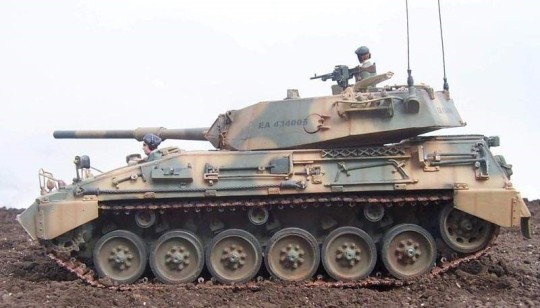
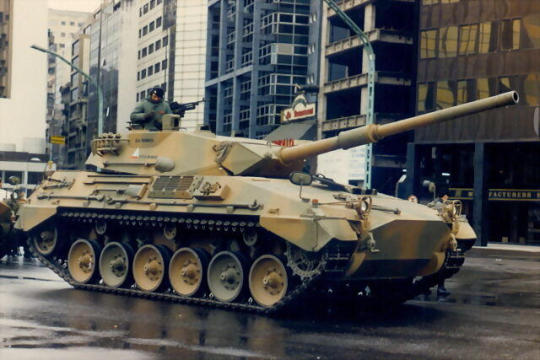
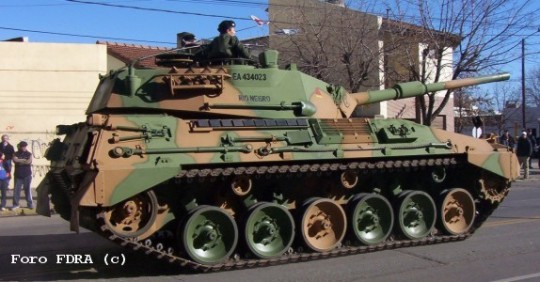
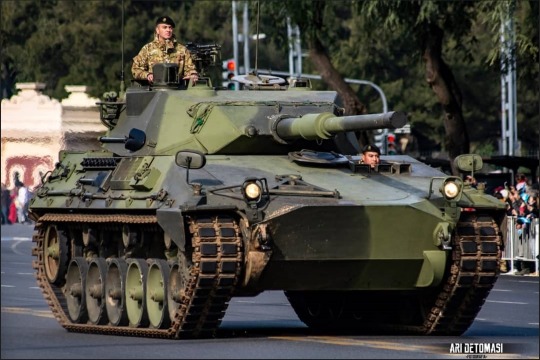
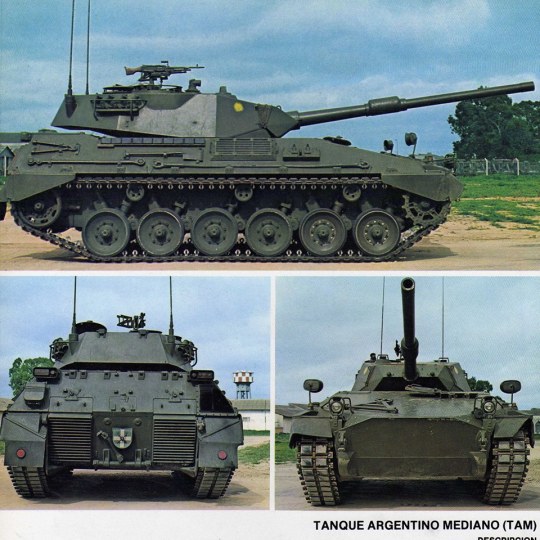
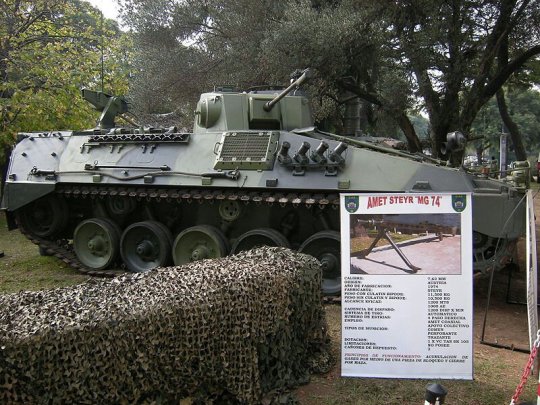
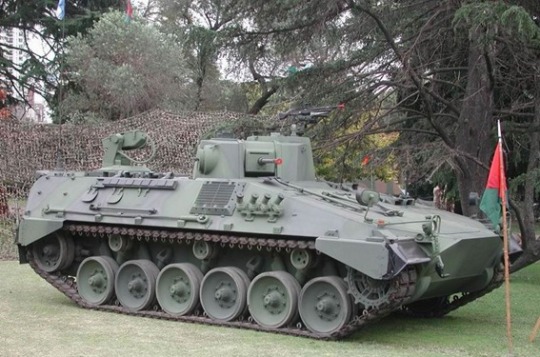
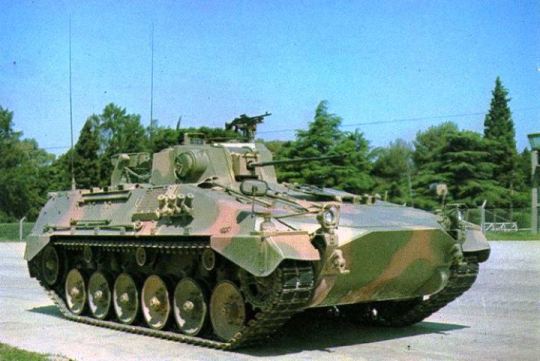
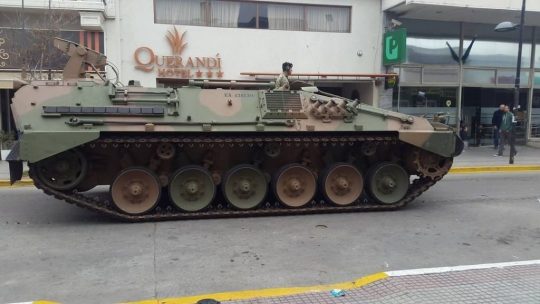
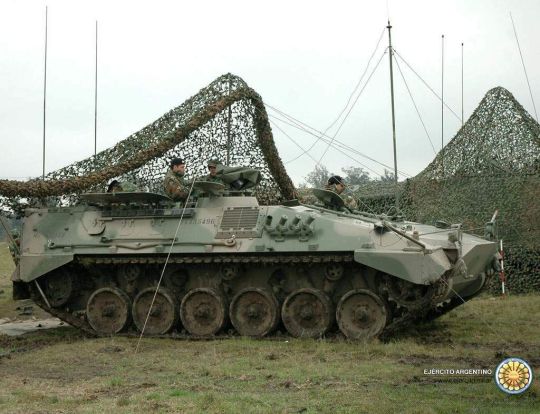
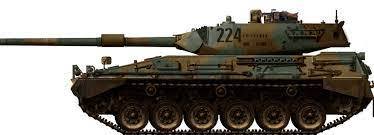
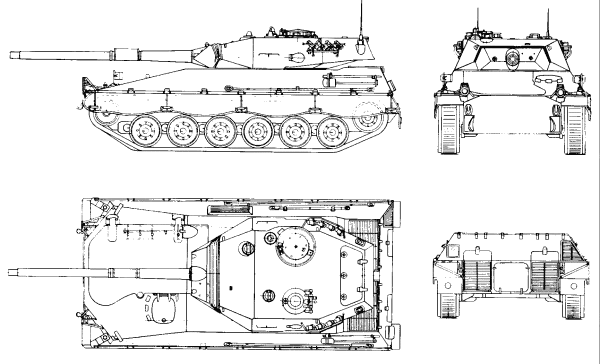
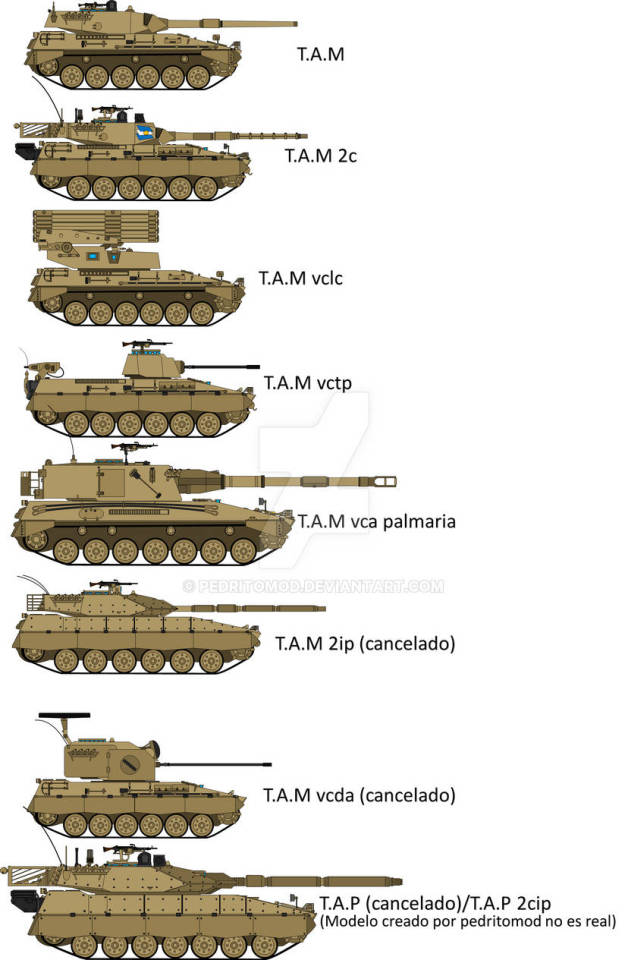
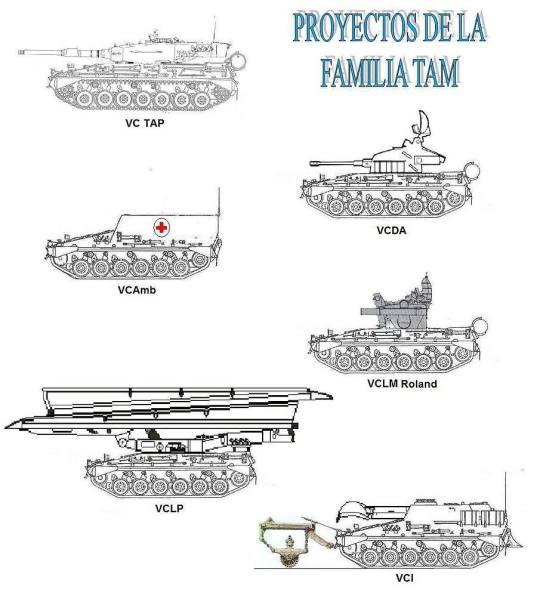
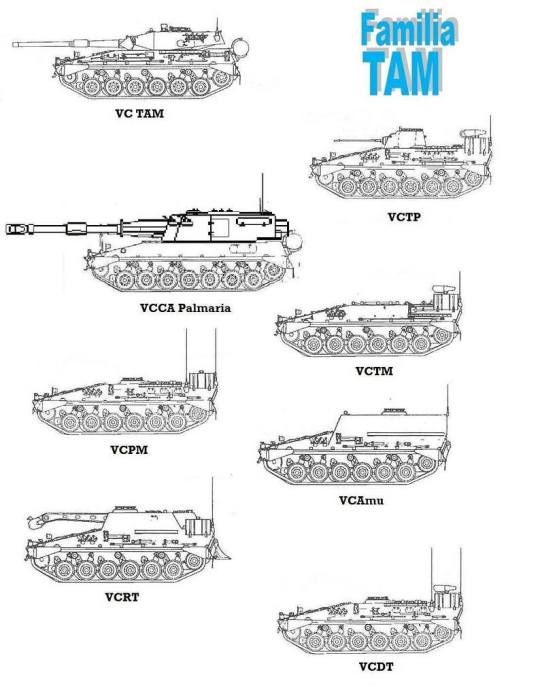
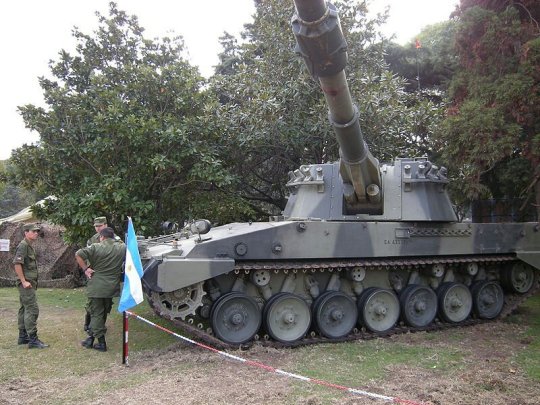
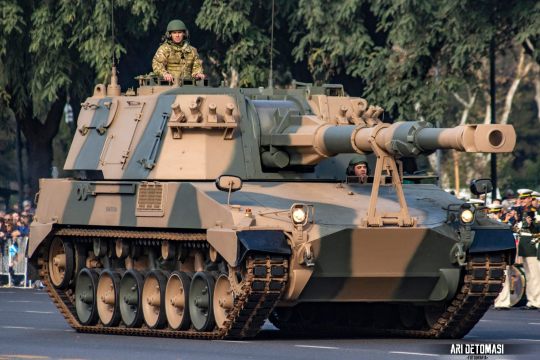
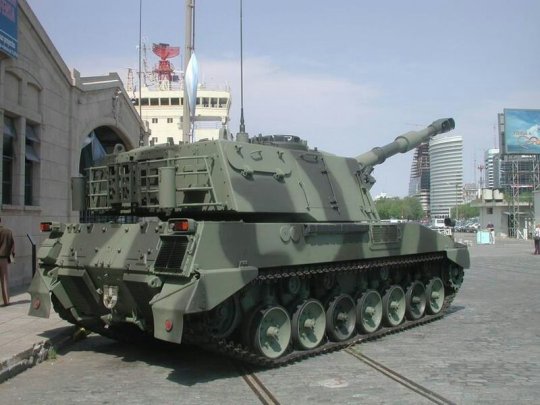
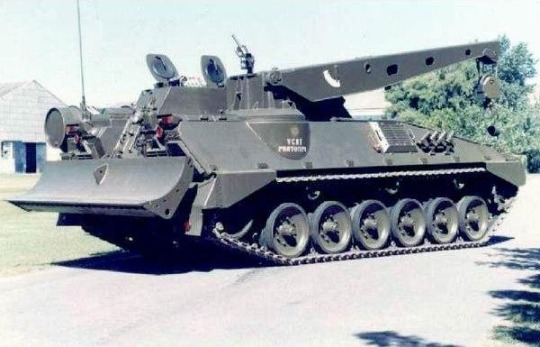
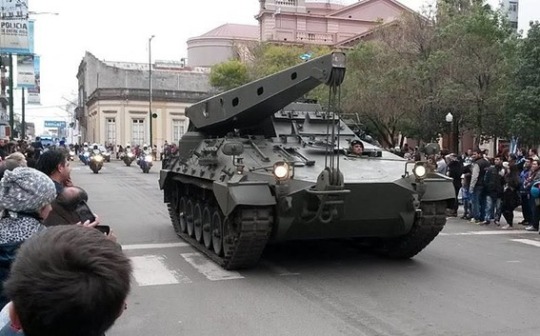
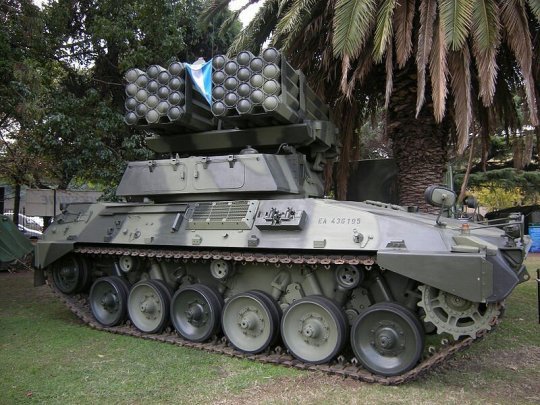
The Tanque Argentino Mediano (TAM; English: Argentine Medium Tank) is a medium tank in service with the Argentine Army. Lacking the experience and resources to design a tank, the Argentine Ministry of Defense contracted German company Thyssen-Henschel. The vehicle was developed by a German and Argentine team of engineers, and was based on the German Marder infantry fighting vehicle chassis.
The TAM met the Argentine Army's requirement for a modern, lightweight and fast tank with a low silhouette and sufficient firepower to defeat contemporary armored threats. Development began in 1974 and resulted in the construction of three prototypes by early 1977 and full-scale production by 1979. Assembly took place at the local 9,600-square-meter (103,000 sq ft) TAMSE plant, founded for the purpose by the Argentine government. Economic difficulties halted production in 1983, but manufacturing began anew in 1994 until the army's order of 200 tanks was fulfilled.
The TAM series includes seven different variants, such as a 155 mm (6.1-inch) self-propelled howitzer and a mortar carrier vehicle. In total, over 280 such vehicles were built, including armored personnel carriers, artillery and mortar pieces. The TAM and VCTP (Infantry Fighting Vehicles based on the TAM chassis) were manufactured for the Peruvian Army, only to be integrated into the Argentine Army when Peru canceled the contract. The TAM also competed for other export orders, but the TAM was ultimately not exported.
The TAM has never seen combat, although 17 VCTPs were deployed to Croatia for the United Nations UNPROFOR peacekeeping mission.
1 note
·
View note
Text

'Blue Helmets' Arrive
The first group of UNPROFOR forces arrived in Srebrenica on April 18. A new group of soldiers would arrive on a rotating basis approximately every six months. The peacekeepers had light weapons and at no time numbered more than 600 troops.
Srebrenica Anniversary: Timeline To Genocide (rferl.org)

4 notes
·
View notes
Text
i love stories about balkan people fleecing UNPROFOR members in the 90s ajxkelflqleixl
0 notes
Text
(once again, english version follows)
(Link to part 1)
(Link to part 3)
Další random fakta, která jsem se o našem prezidentovi dozvěděla z audioverze jeho životopisu, za kterou jsem ochotně vysolila 300 korun českých:
páně prezidentův pan otec Josef Pavel zásadně odmítá, že by synovi v armádě poskytoval jakoukoli protekci. Jako plukovník měl ale kancl hned naproti kanceláři Petrova velitele, a tak se vždycky dozvěděl jako první, když neměl poručík Pavel správně uklizenou skříňku. Petr po čase otce obvinil z toho, že s takovou tam nevedou velitelství, ale spolek rodičů a přátel školy.
jednou měly jednotky obou Pavlů společné cvičení, přičemž Pavel junior a jeho výsadkáři hráli roli diverzantů a celou noc se v lese leželi v listí a číhali. Panu Josefovi se jich zželelo, protože byla noc a tma a hlavně 20 stupňů pod nulou. A jak sám přiznal, to, že tam mrznul i jeho Petr mu taky fuk nebylo. Zašel tedy za kuchařem, vzal několik termohrnců párků a teplý čaj a vyrazil za nimi. Na místě se mu dostalo vřelého přivítání v podobě tlupy z ničehož nic se objevivších umouněných paragánů, kteří ho okamžitě začali “píchat bajonety do ledvin”, načež se Pavel starší hájil slovy “Nechte mě, vy pitomci, nesu vám párky!”
během mise v Jugoslávii, když Pavlovu jednotku zajali Srbové, a hnali ji před sebou jako živé štíty až k přední linii, strávil tehdy už podplukovník Pavel celou cestu zpátky na Srbskou základnu (během které mu drželi u hlavy samopal) tím, že svému vězniteli sprostě nadával. Když dorazili na místo, zařval na onoho Srba “Dej už to do hajzlu!”, otočil se, odkráčel za srbským velitelem, po cestě odstrčil stráž se slovy “S tebou se bavit nebudu!”, a velitele zjebal na tři doby, že se nechovají jako civilizovaný národ, a že jestli se budou k mírovým jednotkám chovat takhle, tak všichni půjdou před válečný soud. Velitel nechal Pavla i jeho jednotku okamžitě odejít.
More random facts I learned about Petr Pavel from the audio-version of his biography, which I have purchased for 300 czech crowns:
Mr. president’s father Josef Pavel has categorically denied having provided his son with any protection during their time in the army. As a colonel, however, his office was right down the hall from the office belonging to Petr’s commanding officer, so he was always the first to know whenever lieutenant Pavel failed to properly clean his locker. After a while, Pavel junior accused his father of running a parent-teacher conference instead of a military command.
on one occasion, the two Pavels’ respective units had a shared military exercise. Pavel Junior’s paratroopers played the role of diversionists, so they spent the whole night lying in wait on the forest floor. Mr. Josef ended up pitying the boys, because it was the middle of the night, it was dark and, most importantly, negative 20 degrees celsius. And as he later admitted, the fact that it was his Petr freezing his butt off there also played a part in that. So he went to the field kitchen, got several pots of sausages and some hot tea and went to the “enemy’s” position. His welcome came in the form of a dozen filthy paratroopers appearing out of nowhere, who immediately “started pricking at my kidneys with bayonets”, at which point the colonel defended himself with the words “Stop that, you idiots, I brought you sausages!”
during the UNPROFOR mission in Yugoslavia, Pavel and his unit got captured by the Serbs. Having been forced to drive all the way up to the front line and ordered to turn back under croatian fire, the relatively newly minted lieutenant-colonel spent the whole trip back to the serbian base yelling profanities at the man holding an assault rifle to the back of his head. On arrival, he shouted at his captor to “Shove that thing up your arse!”, stormed off to talk to the serbian commander, shoved the guard out of his way with the words “I’m not talking to you!” and proceeded to dress down the commander for not behaving like a member of a civilized nation and tell him that if his men kept treating the UN soldiers as they had, they would all stand before a war tribunal. The commander released him and his men immediately.
172 notes
·
View notes
Text
Some additional links for info and Bosnian war resources I couldn’t include in the last post:
Feel free to reblog.
5 notes
·
View notes
Photo

Sonja's Kon-Tiki Restaurant, Vogošća, from Makeshift series.
This site was an abandoned restaurant and motel complex in Vogošća, located about seven miles north of Sarajevo. The motel housed women, while an attached bunker housed men. According to one source, the motel held 50 to 60 Bosnian Muslim girls. The motel was allegedly run as a «bordello», the commanders allowing the frequent rape of the detainees. A detailed allegation of how this «bordello» was run was provided by Borislav Herak. He stated that he visited the site at least once a week on the suggestion or orders of his commanders or his platoon leaders. He stated that he was told it was important for his morale to rape Muslim women. A colleague of Herak's did not assert that he was ordered to go to the camp, but instead said that he had heard that a lot of the army went there. Herak confessed to raping 11 women from the site. He also confessed to killing them or participating in their killing on Zuc mountain. He identified five men who were with him, also raped some of the women, and killed some of them. One of Herak's commanders allegedly knew and approved of the rapes and killings. He and the other commander handed out the keys, and they told Herak they had new girls coming in daily for whom there was not enough room or food. Herak also stated that he was present when French and Canadian UNPROFOR soldiers came to take women away in UN APCs. One of Herak's commander's said that UN soldiers raped women and returned them to the restaurant. Herak added that once he saw General McKenzie, the commander of UNPROFOR in Sarajevo, with four girls. He said he recognized the general from television. (from Annex VIII: Camps)
#vogosca#sarajevo#logor#bosnia#bih#bosna#yugoslavia#Bosnia and Herzegovina#ethnic cleansing#war#aftermath#document#kod sonje#unprofor#makeshift
9 notes
·
View notes
Text
Mulheres no poder: A comandante do UNPROFOR veste a frase “the future is female”

Por Natálya Juliet, Sarajevo
Em cenário de desfecho de conflito, nesta manhã foram apuradas declarações importantes e positivas a respeito da guerra da Bósnia. A comandante Thaís discorreu com maestria a situação mais recente do trabalho do gabinete e as expectativas sobre o futuro da situação bélica.
Entrevista
Pergunta: Boa tarde comandante, podemos dar início a entrevista?
Resposta: Sim, por favor.
P: Quais são as expectativas atuais em relação aos avanços e desfecho da guerra com tudo que vem ocorrendo até o momento?
R: Então, eu como representante da UNPROFOR, estou observando primeiro quais são os pontos críticos territoriais da Bósnia. A gente conseguiu atuar em Prijedor e Derventa; a gente está tentando conseguir uma diplomacia com a Croácia, mas em Priejedor conseguimos libertar os civis que estavam presos nos campos de concentração, então... ainda bem que estamos tendo avanços positivos em relação a nossas operações, também em Mostar estabilizamos a situação, também tentando a diplomacia com a Croácia, estamos tentando fazer frente em relação a isso e também Mostar não apresenta mais situações de instabilidade militar ou humanitária. Também estamos recebendo muito apoio da FAL, Human Rights e Cruz Vermelha em relação aos civis que estão necessitando de mantimentos, então a gente sempre tá mandando mantimentos nos territórios, enfim... para justamente, não obtermos alguma perda civil em um momento desses.
P: E o andamento das safe areas, como você classifica o andamento delas até agora? Em geral, foi um sucesso?
R: Com certeza foi um sucesso! A gente estabeleceu até agora duas safe areas em Gornji e Bugojno, conseguimos com louvor, enfim... a gente sempre mandava mantimentos, sempre mantinha um tropa nessas safe areas, a gente pegou também boa parte dos refugiados de Priedor, uma parte a gente pegou de Kakanj, outra parte a gente está mandando pra Gornji da safe area da localização de Sarajevo por que a gente construiu um túnel de evacuação, então... a gente está tendo melhoras em relação ao o que nos foi apresentado ontem, que infelizmente houve a morte do presidente e do vice, foi uma situação muito assustadora e inquietante para o gabinete nesse momento, então é muito bom a gente ter esse retorno de operações positivas sendo aplicadas no território.

Foto: Ana Júlia
P: A melhoria na cumplicidade e entrosamento do gabinete é notória em seu trabalho em comparação ao princípio da guerra. Para você, como é presenciar essa evolução?
R: É gratificante, por que eu sendo comandante e mulher, a gente sabe que o gabinete tem uma tendência a ser... a ter muita perspectiva machista em relação a isso e às vezes eu sentia como se... sendo uma igual né, então isso é muito importante porque está demonstrando que eu sou comandante independentemente de ser mulher e que estou fazendo um bom trabalho em manter todo mundo junto. Então, eu fico muito feliz em relação a isso, a estar conseguindo atuar com louvor.
P: Como mulher e comandante a frase “The future is female” lhe cai bem no momento. Qual a sensação de fazer parte disso?
R: Maravilhosa! Eu nunca imaginaria que chegaria a esse patamar, justamente por ser um ambiente extremamente, como falei: machista. Então, eu estando aqui só demonstra que eu tenho muito mais para mostrar, por que eu tenho certeza que o futuro realmente é das mulheres e eu sou prova viva disso.
0 notes